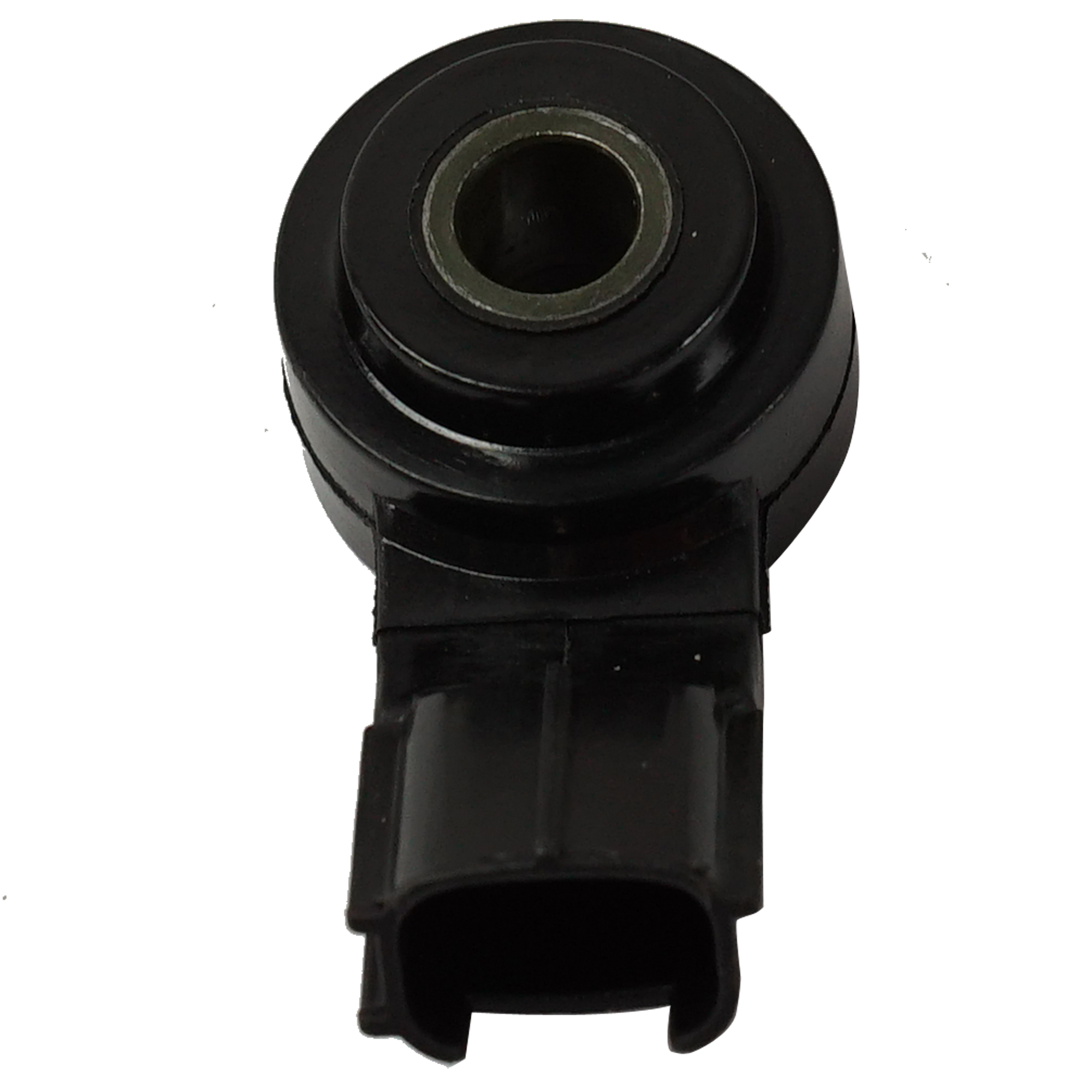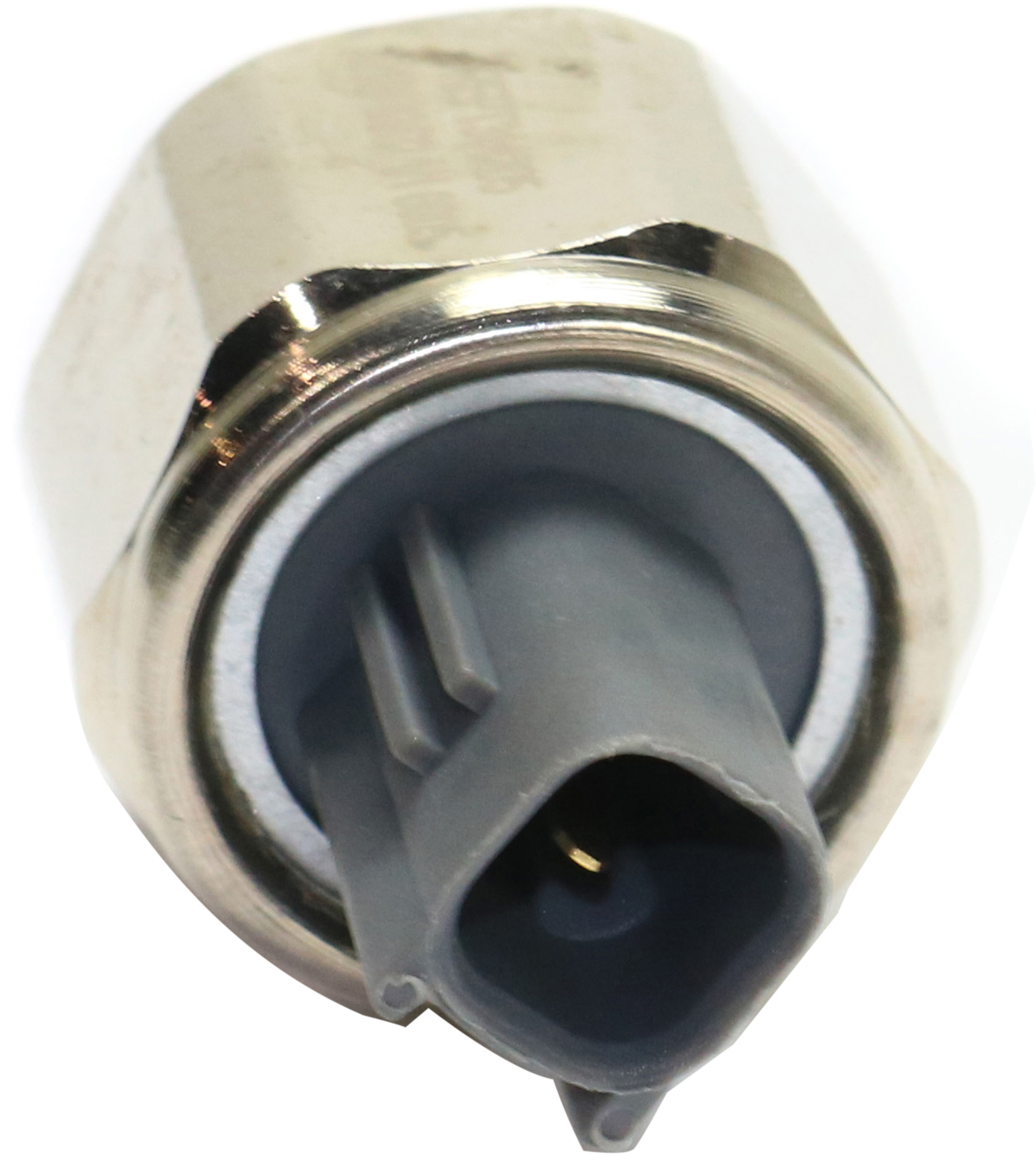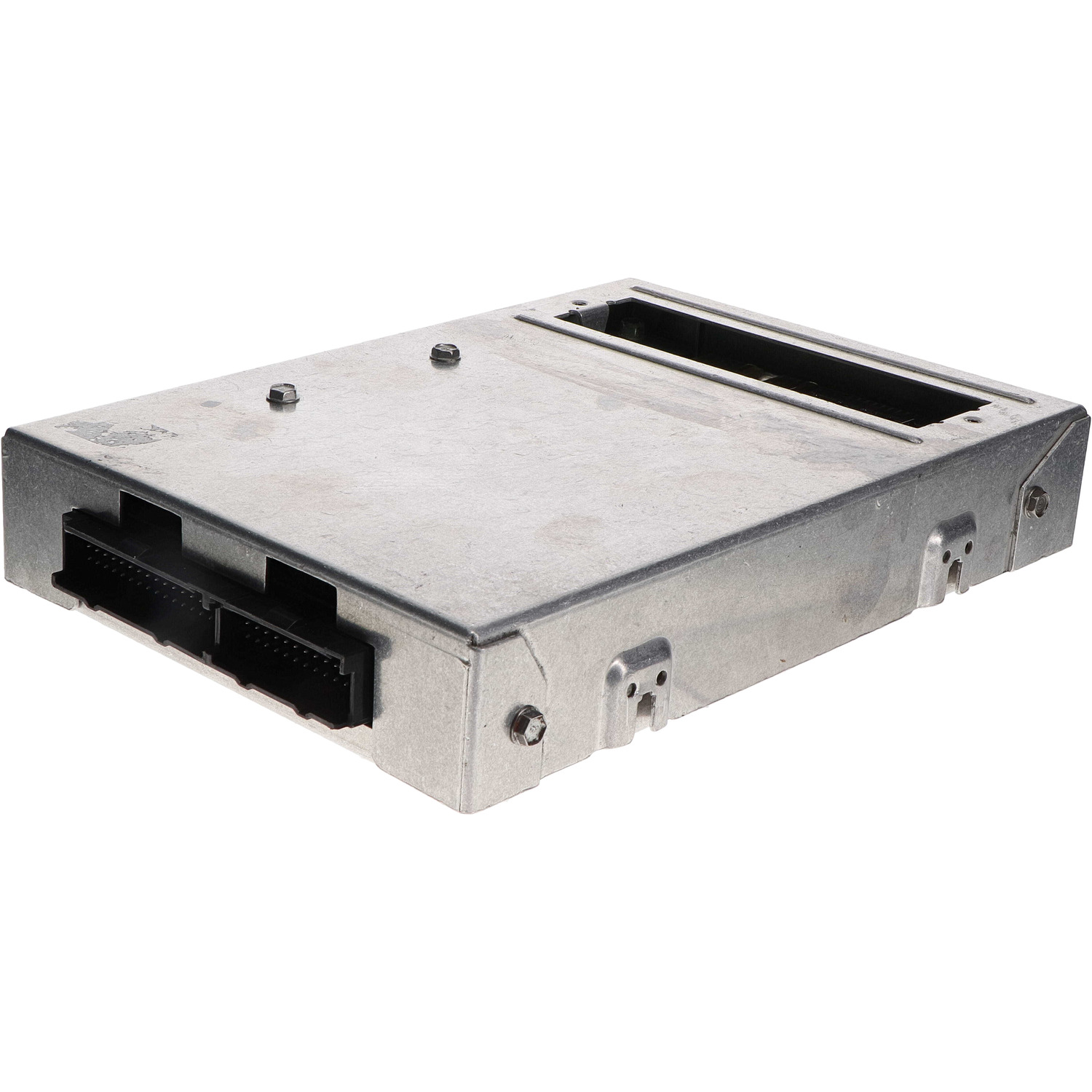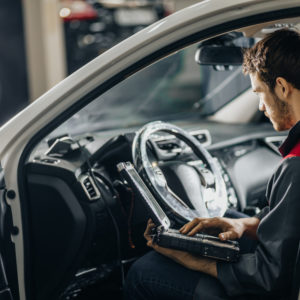Abnormal combustion (either pre-ignition or detonation) leads to spark knock. Because the phenomenon can easily damage the engine, it must be controlled. The powertrain control module (PCM) monitors engine “knocking” with the help of a knock sensor.
When a certain amount of spark knock is detected, the module will retard ignition timing to prevent engine damage.
What Does the P0332 Code Mean?
Diagnostic trouble code (DTC) P0332 stands for “Knock Sensor 2 Circuit Low Input (Bank 2).” It belongs to a range of trouble codes that are triggered by a knock sensor malfunction (P0325 to P0334). A P0332 code gets logged when the PCM receives a reading from the knock sensor that is lower than the voltage specified by the manufacturer.
To learn more about how the knock sensor works, you may read our explanation here.

An engine code P0332 means that knock sensor #2 is sending an output voltage to the PCM that is lower than the manufacturer-specified range. Without proper readings from the knock sensor, the PCM cannot accurately alter ignition timing to prevent engine knocking.
P0332 is a generic trouble code that applies to a variety of makes and models. While the definition of this code is common to vehicles from different manufacturers, the steps for diagnosis and repair may vary depending on make and model.
What are the Possible Causes of the P0332 Code?
- Faulty or broken knock sensor
- Water Contaminated Knock Sensor (V8 Chevies)
- Open, short, or wiring problem in the knock sensor circuit
- Malfunctioning PCM

What are the Common Symptoms of the P0332 Code?
Code P0332 may or may not come with noticeable drivability problems. If you observe any of the symptoms below, get your vehicle checked by a licensed mechanic to prevent serious engine problems.

Check Engine Light
There are many trouble codes that can cause a Check Engine Light to illuminate. The only way to confirm that a P0332 code triggered it is by connecting your vehicle to a scan tool. You may do this at home if you have the tool at your disposal, or you may take your vehicle to a trusted mechanic instead.
Reduced Engine Performance and Fuel Efficiency
A bad knock sensor may also affect your engine’s performance and fuel efficiency.
How to Diagnose the P0332 Code
It can be challenging to figure out why the P0332 code was logged in the first place, so it might be better to leave the job to your trusted mechanic. However, if you have the necessary DIY car repair skills, you can track down the root cause of the trouble code yourself.
You can check out the videos below to help you better understand the P0332 code and how to properly troubleshoot and fix it:
How to Fix the P0332 Code
There’s no single way to fix the P0332 code as there are several possible reasons why it was logged in the first place. This is why it might be best to leave the job to a professional mechanic.
However, if you believe you have the necessary DIY skills and decide to do the fix yourself, you first need to figure out what’s actually triggering the code. Once you’ve narrowed it down to the exact cause, use online auto repair resources and guides or an ALLDATA single-vehicle subscription to help you fix it.
Do remember that what works for someone else’s car may not work on your car as different carmakers have specific repair instructions for their models. Make sure to consult your owner’s manual before proceeding to fix the P0332 code.
Get a Replacement Knock Sensor to Fix the P0332 Code
A bad knock sensor leaves your vehicle vulnerable to engine knocking. If the powertrain control module logs a P0332 code or another code that covers the sensor, replace the faulty device immediately. Good thing CarParts.com can help you get a quality knock sensor that fits your vehicle exactly like the previous part.
Here at CarParts.com, we make your online shopping experience convenient and secure. Enter our easy-to-navigate website and plug your vehicle’s year, make, and model into our built-in vehicle selector. We give you accurate and extensive details on the part’s fitment, guaranteeing a perfect fit for your vehicle. Our products are also available at various price points, ensuring you have options to choose from that won’t break your budget.
Don’t wait for more trouble codes to join the P0332 code. Instead, check out our extensive array of knock sensors and restore your vehicle’s performance today.
Products Mentioned in this Guide
Shop this Project


Any information provided on this Website is for informational purposes only and is not intended to replace consultation with a professional mechanic. The accuracy and timeliness of the information may change from the time of publication.


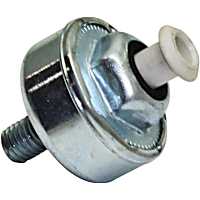 Knock Sensor
Knock Sensor
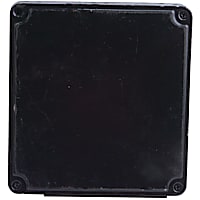 Engine Control Module
Engine Control Module
